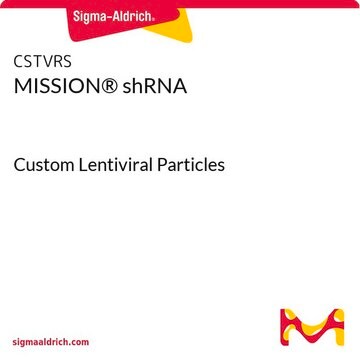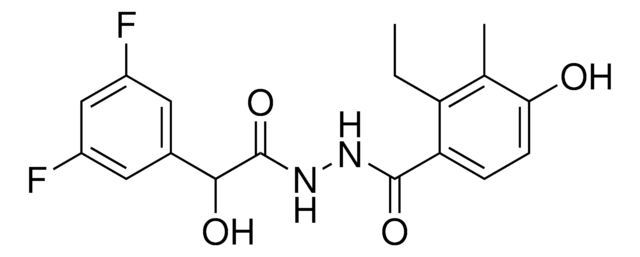SML1332
NG25 trihydrochloride
≥98% (HPLC)
Sinônimo(s):
N-[4-[(4-Ethyl-1-piperazinyl)methyl]-3-(trifluoromethyl)phenyl]-4-methyl-3-(1H-pyrrolo[2,3-b]pyridin-4-yloxy)-benzamide trihydrochloride, NG 25 trihydrochloride
About This Item
Produtos recomendados
Nível de qualidade
Ensaio
≥98% (HPLC)
forma
powder
condição de armazenamento
protect from light
cor
white to beige
solubilidade
H2O: 5 mg/mL, clear
temperatura de armazenamento
2-8°C
cadeia de caracteres SMILES
CC1=CC=C(C(NC2=CC=C(CN3CCN(CC)CC3)C(C(F)(F)F)=C2)=O)C=C1OC4=C(C=CN5)C5=NC=C4
InChI
1S/C29H30F3N5O2/c1-3-36-12-14-37(15-13-36)18-21-6-7-22(17-24(21)29(30,31)32)35-28(38)20-5-4-19(2)26(16-20)39-25-9-11-34-27-23(25)8-10-33-27/h4-11,16-17H,3,12-15,18H2,1-2H3,(H,33,34)(H,35,38)
chave InChI
SMPGEBOIKULBCT-UHFFFAOYSA-N
Aplicação
Ações bioquímicas/fisiológicas
Outras notas
Palavra indicadora
Danger
Frases de perigo
Declarações de precaução
Classificações de perigo
Acute Tox. 3 Oral - Aquatic Chronic 4
Código de classe de armazenamento
6.1C - Combustible acute toxic Cat.3 / toxic compounds or compounds which causing chronic effects
Classe de risco de água (WGK)
WGK 3
Ponto de fulgor (°F)
Not applicable
Ponto de fulgor (°C)
Not applicable
Certificados de análise (COA)
Busque Certificados de análise (COA) digitando o Número do Lote do produto. Os números de lote e remessa podem ser encontrados no rótulo de um produto após a palavra “Lot” ou “Batch”.
Já possui este produto?
Encontre a documentação dos produtos que você adquiriu recentemente na biblioteca de documentos.
Nossa equipe de cientistas tem experiência em todas as áreas de pesquisa, incluindo Life Sciences, ciência de materiais, síntese química, cromatografia, química analítica e muitas outras.
Entre em contato com a assistência técnica








